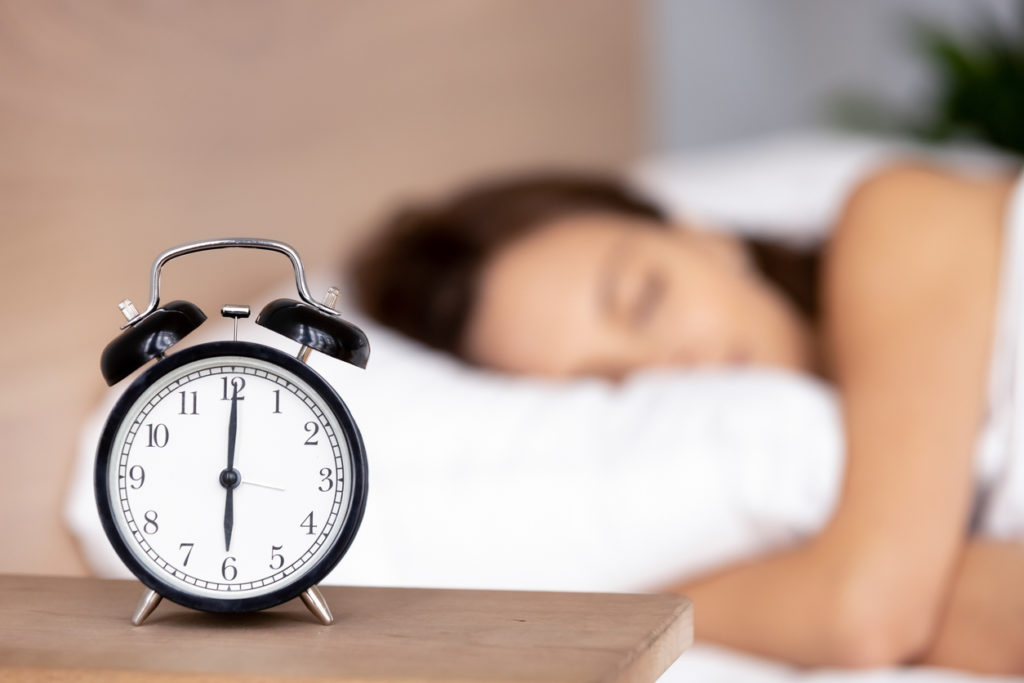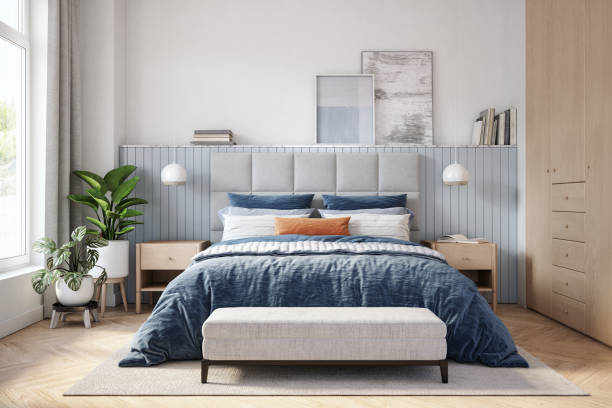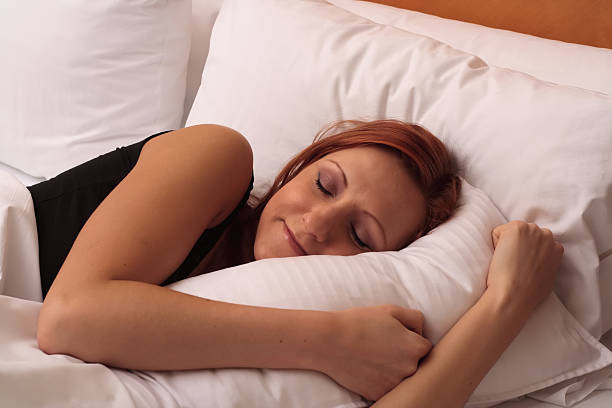How to improve your night’s sleep? Sounds unrealistic right? But there is more you need to know.
Research shows that there has been a remarkable change in sleep quality and quantity over the years. There is an increasing spindle density, slow-wave sleep, and sleep fragmentation1.
Quality sleep is as vital as a healthy diet and regular exercise. Studies show that poor sleep can cause hormonal imbalance2, impaired brain function3, and weight gain4.
Sleep disturbances also increase the risk of other chronic diseases5 and depression6.
On the other hand, a good night’s sleep will improve your health, make you eat less, exercise properly, and improve your brain function.7,8,9
If you want to be healthier, here are 21 medically-proven ways to prevent insomnia and improve the quality of your sleep
1. Sleep schedule routine

A 2020 study poses that regularity in sleep and wake-up times improve sleep quality and health.
In another study of the elderly community with a quest to determine the effects of routine to sleep quality, results show that regularity in sleeping routines reduced the rate of insomnia in the elderly individuals.10
Ensure you maintain a normal sleep cycle to improve sleep quality.
2. Ensure exposure to bright light during the day

A 2018 peer-reviewed study poses that exposure to light during the day enhances melatonin synthesis and improves the circadian rhythm.
Melatonin is the sleep-stimulating hormone that will make you have a restful sleep and maintain a normal sleep cycle11.
3. Avoid blue light in the evening and at night

A medically reviewed study suggests exposure to blue-wavelength light from devices suppresses melatonin and causes neurophysiologic arousal.12
Avoiding blue light in the evening or using blue light glasses to operate your device at night will improve the quality of your restful sleep.13
A study done in 2017 shows that regulating blue light may help reduce chronic insomnia without using sleeping pills.
4. Avoid alcohol
A 2015 publication shows that alcohol impairs sleep homeostasis and increases sleep disruptions. Taking alcohol will lead to excessive daytime sleeping and alter your normal good sleep hygiene.14
A study conducted on the effects of alcohol on sleep quality and sleep duration shows a higher risk of sleep disturbances in drunkards than their non-alcoholic counterparts.15
5. Clear your mind in the evening through meditation and relaxing
A 2019 study shows that mindfulness meditation can improve sleep quality and help you better sleep. There are several relaxation techniques to adopt if you have trouble sleeping effectively.
Meditation is one of the natural sleep remedies that you can use to improve sleep. It helps you relieve all the day’s stressors at the workplace or in the family that may disrupt your sleep at night.16
Of all remedies for insomnia, relaxing is key as no amount of sleep aids can equal it. If you make peace with your daily trouble before sleeping, you will maintain a good night’s sleep.17
6. Avoid naps during the day
A 30 minutes nap during the day can enhance performance and learning ability. In contrast, frequent daytime naps are linked to higher mortality and morbidity.18
A 2022 study shows that regular daytime naps increase sleep fragmentation and poor sleep quality. Naps will increase the chances of developing sleep disorders and the inability to stay asleep at night.
7. Set a suitable bedroom temperature
Thermoregulatory mechanisms in the body are related to our circadian timing system; therefore, the right temperatures will either help you sleep or fail to get a good night’s sleep.19
A 2019 study poise that the best sleep quality temperature is 32˚C-28˚C. Moreover, it depends on several factors and human adaptability.
However, it’s advisable to control the bedroom temperature to have a deep sleep for a healthier you.
8. Avoid artificial lights on the bed
The lights striking your eyes from any screen or smartphone will rob you of quality sleep. So avoid using these devices in bed or a few hours before bed. Let the screens go off at least 20 minutes before you go to bed.
9. Avoid stimulants
Sleep research in 2017 found that caffeine reduces total sleep time, prolongs sleep latency, and worsens sleep efficiency. Stimulants make you have trouble falling asleep and impair your sleep habits.
Do away with caffeine. Nicotine and alcoholic substances are unnatural sugars. Settle on a healthy diet and get a better night’s sleep.
In an insomnia medically reviewed study,20 caffeine-consuming individuals were found to have minor to major chronic insomnia symptoms.
10. Get regular exercise in the morning

Research shows that physical activity should be done 3-4 hours before bed. If you exercise in the morning or during the day, you will have a quality sleep at night. The exercise should be done in the open air and be less strenuous.21,22,23
Late-night workouts will exhaust you, and when you are too tired, you can’t sleep well. Most popular articles poise that increased physical activity of up to 2 hours a week for six months will ill render a good sleep.
A 2011 study shows that late-night exercise does not directly affect sleep quality but cardiac autonomic activity, but more studies are required.
11. Avoid late supper
Mealtimes and the type of foods eaten in every meal will influence your sleep.24 Avoiding meals just before bedtime is a popularly accepted sleep hygiene supported by several physicians25.
Eat your meals three hours before bed. Remember to take light meals in the evening, preferably juices or fruit salads.
12. Follow some healthy routine before bed
A 2018 study shows that music therapy has proven to be suitable for adults with primary insomnia, although more research is needed in this area.
Listen to some good elevating and soothing soft music. It would be best if you preferred hymns in this case. These will help relax the body for people with insomnia.
Read some enriching Christian story, inspiration, or your Bible. Mindfulness meditation on themes of forgiveness and the life of Christ will improve mood outcomes.
13. Treat underlying health conditions
You can do it naturally without drugs. In many cases, chronic insomnia results from other health conditions like anxiety, obesity, and asthma.26
If you have problems like depression, heart disease, and other mental illnesses, seek medical advice to help you regain your sleep.27
14. Make a to-do list of your daily activities
By this, you will avoid planning on your head on the bed, robbing you of sleep. Remember, each day will take care of itself; don’t heap upon your plans the next day as if you have assurance it will be yours.
15. Let your bed be exclusively for sleep
Late-night calls on the bed, chatting, and social media activities should not be carried to the bed. Associate your bedroom with sleeping only, which will help you fall asleep faster immediately after you get to bed.
16. Get off the bed if you don’t feel sleepy
Don’t roll on the bed if you get to bed and don’t feel sleepy. Instead, get up and do something that will draw sleep
A 2021 study shows that reading a book in bed will improve sleep quality and help you fall asleep faster.
As the mind grows weary due to critical thinking, you will feel drowsy, and sleep will come.
17. Get yourself engaged during the day
It will be hard to sleep when you are idle all day long. In addition, the day’s activities will make you tired at night, and you will inevitably fall asleep.
Several clinical trials link physical activities as a remedy for improving sleep. If you have sleep problems, daily physical activity will help you sleep.28
18. Make your bedroom comfortable

Wellness professionals pose that a good sleeping environment will improve the quality and duration of sleep.29
Change your beddings regularly and keep them clean. Work on the ventilation of the room to allow air circulation during sleep. Take off decoration plants in the room.
19. Create a bedtime ritual
You can choose to have a hot bath before bed. Take alternate hot-cold showers, or you can have a warm foot wash just before going to bed.30
Summary
Improving your sleep quality and avoiding insomnia entails lifestyle changes and forming healthy habits that will not affect your hormonal balance.
If you have any medical condition that disrupts your sleep, consider visiting a doctor for your health issues that may affect your good night’s sleep.
Consider the above principles on how to improve your night’s sleep and beat sleep disorders.


Pingback: 12 Home Remedies for Insomnia | GILEAD THERAPY
Pingback: What are the 6 aspects of wellbeing? | GILEAD THERAPY
Pingback: 10 Home Remedies for Migraines and Headaches | GILEAD THERAPY
Pingback: How to Live Longer: 49 ways to increase longevity | GILEAD THERAPY
Pingback: What are the 13 positive lifestyle choices? | GILEAD THERAPY
Pingback: What are the 8 natural remedies? | GILEAD THERAPY
Pingback: Body ache home remedies that works | GILEAD THERAPY
Pingback: Bedwetting: Causes, Threats, and Remedies | GILEAD THERAPY
Pingback: 7 Home remedies for tonsils that works | GILEAD THERAPY